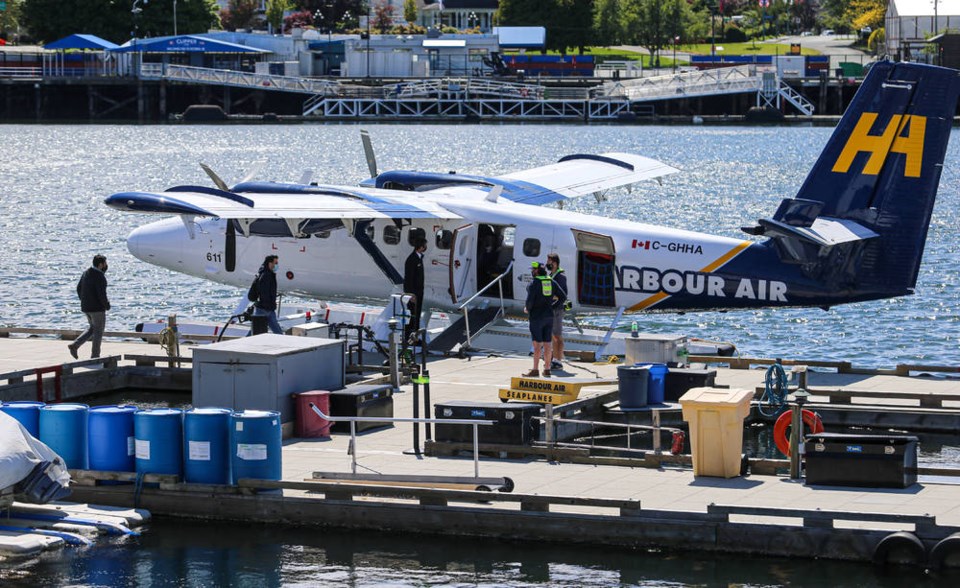Victoria’s tourism industry was provided a lifeline by the provincial government Tuesday, helping to keep parts of it afloat.
The industry, hit harder than most by the pandemic, now has some of the detail for the tourism relief funding announced in April’s provincial budget.
The $50 million B.C. Major Anchor Attractions Program will provide grants worth as much as $1 million for bridging capital to ensure the province’s “anchor” attractions and tour bus operators can survive the pandemic and eventually ramp up operations when it’s safe to do so.
The money will cover expenses like payroll, rent and utilities related to restarting operations. The application process is open until June 7, with money to flow in July.
Paul Nursey, chief executive at Destination Greater Victoria, said the program will help companies fund operations until there is some kind of reopening and it was nice that the government recognized tourism is an integrated system of businesses that rely on each other.
In an emailed statement, Dave Cowen, chief executive of Butchart Gardens, said the funding can certainly be used by large attractions entering a second year of facing a 90 per cent loss of revenue. “We appreciate this funding gesture as it will help contribute towards some fixed costs like insurance or property tax,” he said.
Tourism Minister Melanie Mark said urban attractions that receive 75,000 visitors or more each year are eligible for the maximum amount, while rural attractions with 15,000 or more visitors and tourism bus companies with 30,000 or more passengers a year may receive up to $500,000.
Nursey said while the money will help some, the most important thing the government can do for the entire industry is come up with a re-opening plan.
“We know we are weeks away from hitting some (vaccination) thresholds, but people need to plan their vacations,” he said, noting with no idea when or how travel restrictions may be lifted, hotels are facing hundreds of empty beds. “In speaking to the hotels, I’m told there are virtually no reservations for the summer – it’s worse than last summer.”
He said without a plan — ideally one that makes clear when certain restrictions will be lifted or relaxed as vaccination targets are hit and COVID cases drop — people can’t plan and businesses can’t invest and hire staff.
“If we wait another month to have a re-opening plan we will lose the summer,” he said. “We need a road map.”
John Wilson, president of Wilson’s Transportation, echoed those sentiments, noting while the $50 million fund will likely keep some smaller operators running, without a plan to re-open it may be for naught.
“It’s been a struggle to find any detail on when things will open up,” he said. “We are in the midst of the largest (tour operator) trade show in Canada right now, Rendez-vous Canada, and we’re talking with people from all over the world and we have nothing to tell them.” Wilson said tour operators need to book a year out at least – tour companies are at the virtual trade show to meet Canadian operators to book for 2022 and they don’t know what they can promise.
“That’s why a plan is huge,” said Randy Wright, president of Harbour Air. “We had something like 60 appointments (at Rendez-vous) and they are all asking if we will be open in 2022 and about pricing. We are optimistic it will be business as usual but we don’t know.”
The funding details released Tuesday had gaps.
Nursey said the accommodation sector, which got “circuit breaker” relief funding when the province tightened up health regulations, is still in need of support.
Reid James, general manager of the Hotel Grand Pacific, said many of the province’s largest hotels are foreign owned and therefore not eligible for most relief measures other than the federal wage subsidy or access to loans that will just mean more debt.
He said leaving those hotels out is “disappointing, shortsighted and political.”
“I am happy that the attractions are receiving support as we need them to be viable as a destination,” he said, but pointed out all sectors within tourism have not been treated equally.
“Some sources say that 30 per cent of hotels and motels will go bankrupt and that is a major problem and tragedy,” said James. “We are thankful for the funds that the government has made available but they are not nearly enough relative to the revenues the tourism sector generates. If you consider the size of the funding, the criteria for eligibility, and the delay in making the decisions, the government has fallen well short of my expectations.”
Wright, whose airline is operating at about 10 per cent of capacity and with a fraction of staff, is holding out hope there is more relief on the way. “We haven’t seen any funding yet, but I am in dialogue with the (province) and optimistic,” he said. “
aduffy@timescolonist.com
